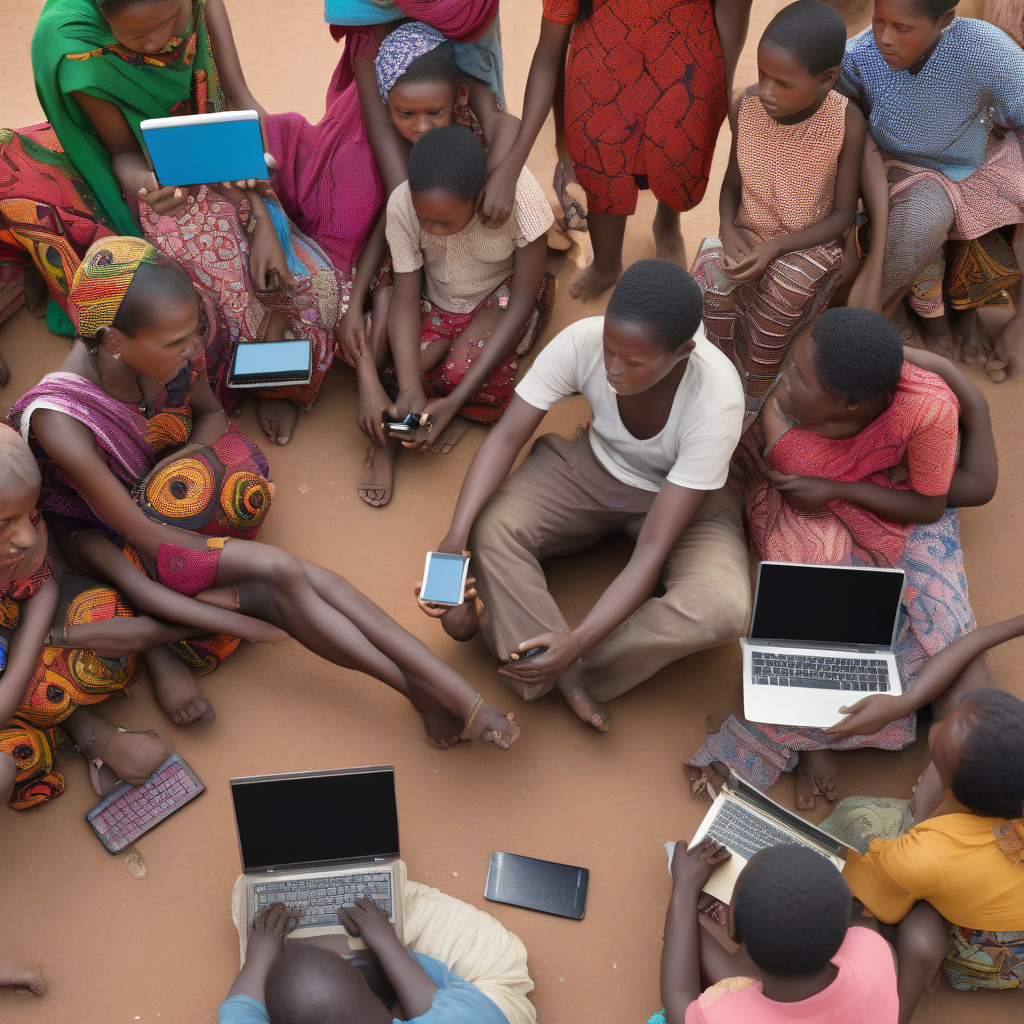Global South Pushes for Digital Inclusion
As global leaders gather to confront the rising tide of digital inequality, a new urgency emerges: ensuring the world’s most vulnerable communities aren’t left behind in the AI revolution. This pressing issue has brought to light the importance of digital inclusion, particularly in the Global South. While technology has the power to transform economies and societies, it also has the potential to exacerbate existing disparities if not implemented thoughtfully.
In recent years, there has been a significant push from countries in the Global South to bridge the digital divide and ensure that their citizens have access to the digital tools and resources necessary to thrive in the 21st century. One such example is Rwanda, a country that has made impressive strides in leveraging technology for economic development. Through initiatives like the Kigali Innovation City and partnerships with tech companies, Rwanda has positioned itself as a hub for innovation and entrepreneurship in East Africa.
Similarly, countries like India and Brazil have also recognized the importance of digital inclusion in driving economic growth and social progress. In India, the government’s Digital India campaign aims to provide digital infrastructure and services to all citizens, especially those in rural and remote areas. In Brazil, initiatives like the Innovation Fund and the Digital Transformation Strategy are paving the way for a more inclusive and tech-savvy society.
But digital inclusion is not just a matter of providing access to technology; it also involves building digital literacy and skills among underserved populations. This is where partnerships between governments, tech companies, and non-profit organizations play a crucial role. By investing in education and training programs, countries can empower their citizens to leverage technology for personal and professional development.
Moreover, businesses have a role to play in promoting digital inclusion through their products and services. E-commerce platforms, for example, can cater to diverse customer needs by offering multilingual support and accessible payment options. By making their online stores more user-friendly and inclusive, companies can tap into new markets and drive revenue growth.
In the realm of digital marketing, inclusivity should also be a top priority. Marketers should strive to create campaigns that resonate with a global audience, taking into account cultural nuances and local preferences. By embracing diversity in their messaging and imagery, brands can foster a sense of belonging and connection with customers from all walks of life.
Ultimately, the push for digital inclusion in the Global South is not just a moral imperative; it is also a strategic investment in the future. By ensuring that everyone has equal access to the digital tools and opportunities of the modern age, countries can unlock the full potential of their populations and pave the way for sustainable development.
In conclusion, the call for digital inclusion in the Global South is growing louder, and it is up to policymakers, businesses, and marketers to heed this call. By working together to bridge the digital divide, we can create a more equitable and prosperous world for all.
digital inclusion, Global South, AI revolution, e-commerce, digital marketing
